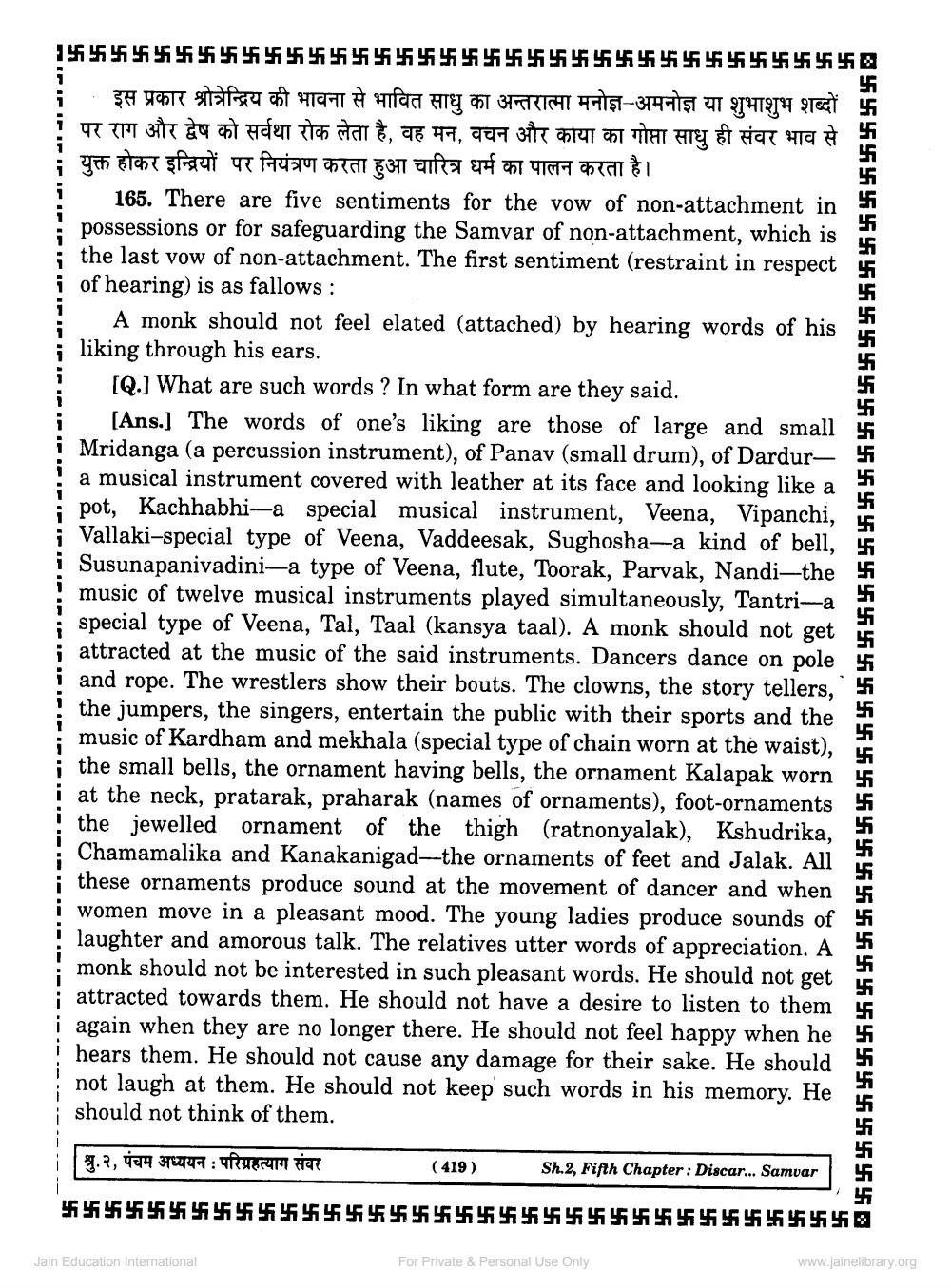________________
155555555555555555555
इस प्रकार श्रोत्रेन्द्रिय की भावना से भावित साधु का अन्तरात्मा मनोज्ञ - अमनोज्ञ या शुभाशुभ शब्दों पर राग और द्वेष को सर्वथा रोक लेता है, वह मन, वचन और काया का गोप्ता साधु ही संवर भाव से युक्त होकर इन्द्रियों पर नियंत्रण करता हुआ चारित्र धर्म का पालन करता है।
165. There are five sentiments for the vow of non-attachment in possessions or for safeguarding the Samvar of non-attachment, which is the last vow of non-attachment. The first sentiment (restraint in respect of hearing) is as fallows :
A monk should not feel elated (attached) by hearing words of his liking through his ears.
[Q.] What are such words? In what form are they said.
[Ans.] The words of one's liking are those of large and small Mridanga (a percussion instrument), of Panav (small drum), of Dardur a musical instrument covered with leather at its face and looking like a pot, Kachhabhi-a special musical instrument, Veena, Vipanchi, Vallaki-special type of Veena, Vaddeesak, Sughosha-a kind of bell, Susunapanivadini-a type of Veena, flute, Toorak, Parvak, Nandi-the music of twelve musical instruments played simultaneously, Tantri-a special type of Veena, Tal, Taal (kansya taal). A monk should not get attracted at the music of the said instruments. Dancers dance on pole and rope. The wrestlers show their bouts. The clowns, the story tellers, the jumpers, the singers, entertain the public with their sports and the music of Kardham and mekhala (special type of chain worn at the waist), the small bells, the ornament having bells, the ornament Kalapak worn at the neck, pratarak, praharak (names of ornaments), foot-ornaments the jewelled ornament of the thigh (ratnonyalak), Kshudrika, Chamamalika and Kanakanigad-the ornaments of feet and Jalak. All these ornaments produce sound at the movement of dancer and when women move in a pleasant mood. The young ladies produce sounds of laughter and amorous talk. The relatives utter words of appreciation. A monk should not be interested in such pleasant words. He should not get attracted towards them. He should not have a desire to listen to them again when they are no longer there. He should not feel happy when he hears them. He should not cause any damage for their sake. He should not laugh at them. He should not keep such words in his memory. He should not think of them.
श्रु. २, पंचम अध्ययन: परिग्रहत्याग संवर
(419)
Jain Education International
Sh.2, Fifth Chapter: Discar... Samvar
05555555555555555555555555555555555
For Private & Personal Use Only
卐
卐
卐
9595955 55 5 5 5 5 5 5 55 5 5 5 55 5 5 5 5 555 555555552
卐
www.jainelibrary.org




